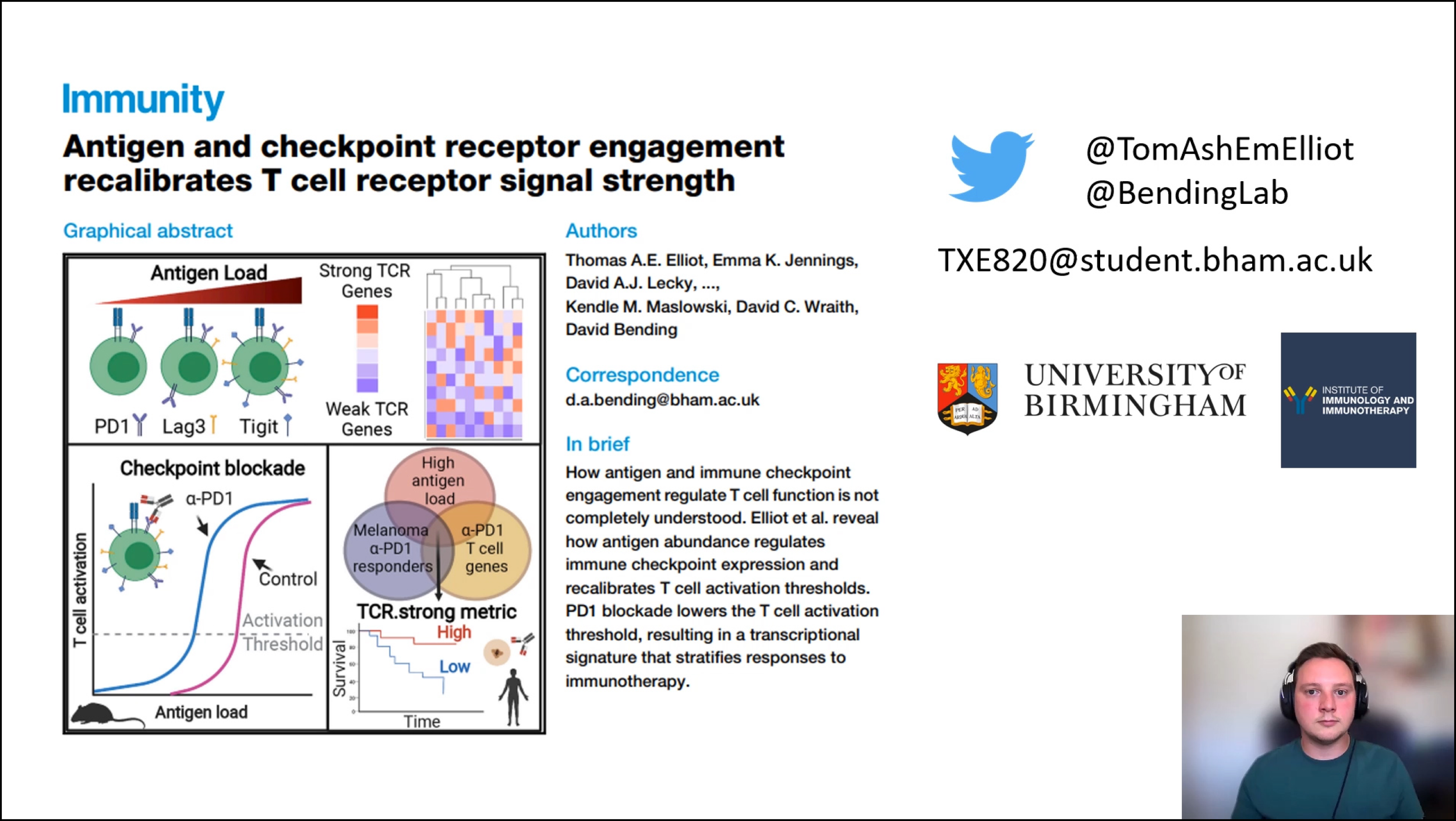Antigen and checkpoint receptor engagement recalibrates T cell receptor signal strength
Thomas A E Elliot1, Emma K Jennings1, David A J Lecky1, Natasha Thawait1, Adriana Flores-Langarica2, Alastair Copland1, Kendle M Maslowski3, David C Wraith1, David Bending4
- Institute of Immunology and Immunotherapy, College of Medical and Dental Sciences, University of Birmingham, Birmingham B15 2TT, UK.
- Infrastructure and Facilities, College of Medical and Dental Sciences, University of Birmingham, Birmingham B15 2TT, UK.
- Institute of Immunology and Immunotherapy, College of Medical and Dental Sciences, University of Birmingham, Birmingham B15 2TT, UK; Institute of Metabolism and Systems Research, College of Medical and Dental Sciences, University of Birmingham, Birmingham B15 2TT, UK.
- Institute of Immunology and Immunotherapy, College of Medical and Dental Sciences, University of Birmingham, Birmingham B15 2TT, UK. Electronic address: d.a.bending@bham.ac.uk.
Abstract
How T cell receptor (TCR) signal strength modulates T cell function and to what extent this is modified by immune checkpoint blockade (ICB) are key questions in immunology. Using Nr4a3-Tocky mice, we characterized early quantitative and qualitative changes that occur in CD4+ T cells in relation to TCR signaling strength. We captured how dose- and time-dependent programming of distinct co-inhibitory receptors rapidly recalibrates T cell activation thresholds and visualized the immediate effects of ICB on T cell re-activation. Our findings reveal that anti-PD1 immunotherapy leads to an increased TCR signal strength. We defined a strong TCR signal metric of five genes upregulated by anti-PD1 in T cells (TCR.strong), which was superior to a canonical T cell activation gene signature in stratifying melanoma patient outcomes to anti-PD1 therapy. Our study therefore reveals how analysis of TCR signal strength-and its manipulation-can provide powerful metrics for monitoring outcomes to immunotherapy.
Presented By Thomas A E Elliot | ORCID iD

